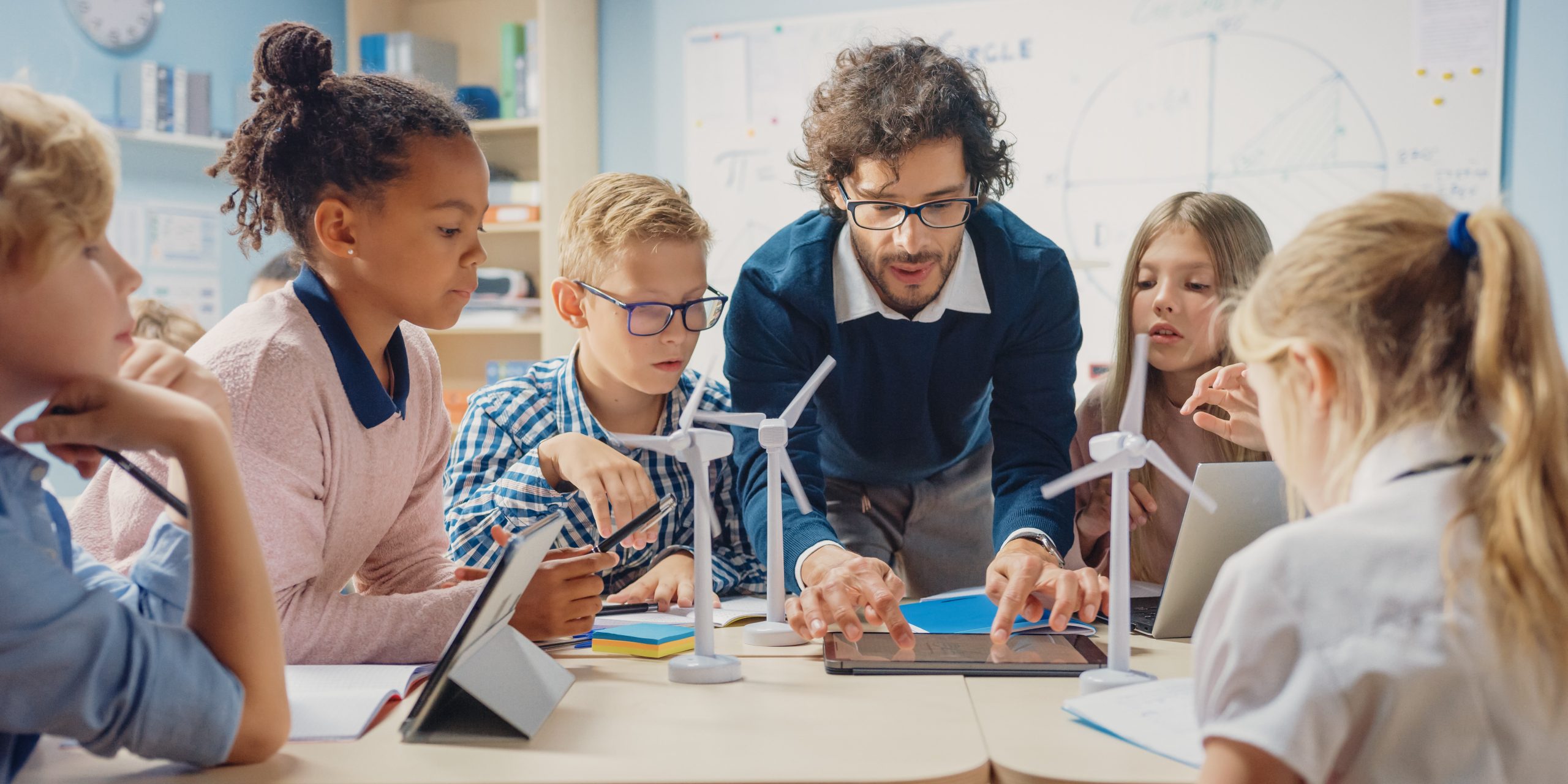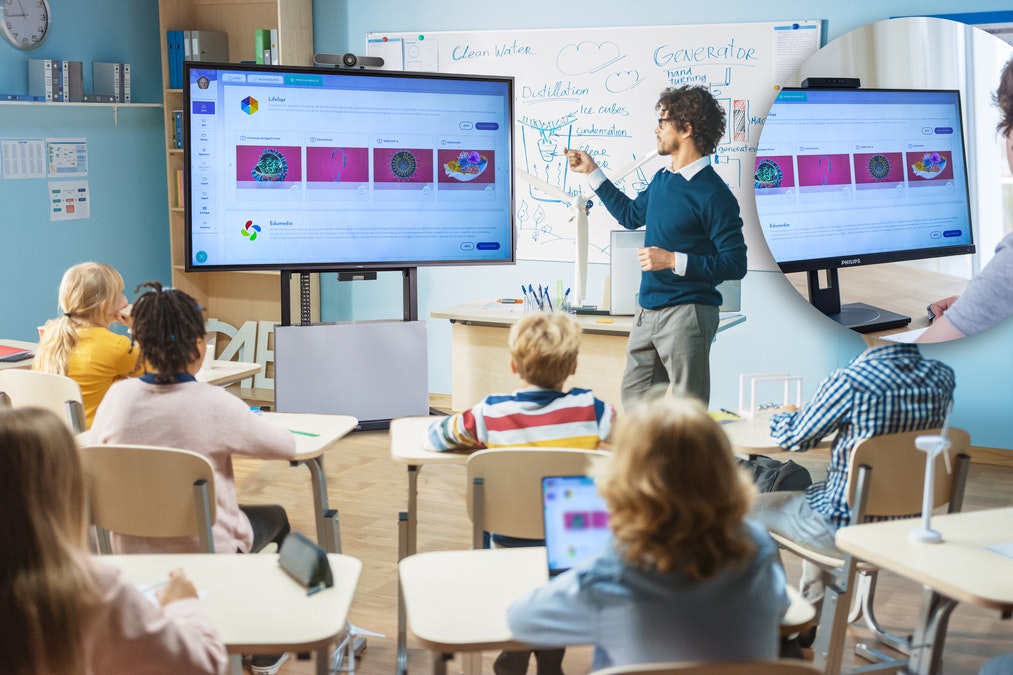Affordable Primary Science Tuition Singapore for All Learning Needs
Affordable Primary Science Tuition Singapore for All Learning Needs
Blog Article
Exploring the Different Training Techniques in Main Scientific Research Education Today
Inquiry-based learning, hands-on experiments, and the integration of technology are redefining how teachers involve young minds. In addition, joint approaches and differentiated direction are being used to provide to the diverse requirements of trainees, boosting both involvement and understanding.
Inquiry-Based Learning
Inquiry-Based Learning (IBL) is an instructional technique that encourages pupils to discover clinical principles through questioning, investigation, and hands-on experimentation. This method stresses the duty of students as energetic individuals in their understanding, advertising essential reasoning and analytic abilities. By engaging with real-world questions, students become interested and motivated, which enhances their understanding of scientific concepts.
In IBL, educators function as facilitators, guiding students as they browse their queries instead of supplying info directly. This student-centered approach permits differentiation, accommodating various learning designs and paces. Students create skills in creating hypotheses, designing experiments, and evaluating data, which are essential for clinical literacy.
In addition, IBL fosters collaboration amongst students, motivating them to share ideas and searchings for. This collective query advertises social skills and a feeling of neighborhood within the class. The process of query urges durability, as trainees discover to accept failing as a tipping rock towards understanding.
Hands-On Experiments
Hands-on experiments are a vital element of effective science education, complementing the concepts of inquiry-based knowing. These experiments permit trainees to involve straight with clinical ideas, cultivating a deeper understanding via experiential understanding. By controling products and observing outcomes, young learners can comprehend abstract concepts in substantial ways.
Such activities advertise important reasoning and problem-solving skills, as pupils hypothesize end results, conduct experiments, and examine results. This procedure urges them to ask questions, improve their understanding, and establish a scientific mindset. Furthermore, hands-on experiments can be customized to diverse knowing styles, ensuring that all pupils have the chance to involve meaningfully with the material.
In addition, hands-on experiments commonly encourage collaboration among peers, advertising team effort and interaction abilities. Operating in teams enables trainees to share ideas, talk about searchings for, and find out from one another, which improves their overall academic experience.
Integrating hands-on experiments right into the main science educational program not just enriches the learning environment but likewise grows a long-lasting interest in scientific research. By proactively joining their education and learning, trainees are more most likely to establish a passion for scientific query that prolongs beyond the class.

Innovation Assimilation
Incorporating technology into main scientific research education and learning has ended up being significantly important in promoting student interaction and boosting discovering outcomes. Using electronic tools, such as interactive simulations, digital labs, and educational software application, supplies trainees with chances to check out scientific ideas in ingenious methods. These sources assist in a much deeper understanding of complicated subjects by permitting students to visualize and manipulate variables that would be impractical in a standard classroom setting.
Additionally, innovation assimilation urges personalized learning experiences. Students can progress at their very own rate, revisiting challenging concepts through multimedia resources, which satisfy different knowing styles. This adaptability not just sustains individual growth but also cultivates a sense of freedom in students.
Furthermore, innovation functions as a bridge to real-world scientific research, linking students with existing research study and expert payments. Access to clinical journals and online data sources broadens pupils' point of views on clinical query and fosters essential believing skills.
Collaborative Understanding
Collective learning plays an essential duty in main scientific research education and learning by cultivating team effort and communication abilities among pupils. This strategy urges learners to interact, share expertise, and involve in problem-solving, which boosts their understanding of scientific principles. By taking part in group activities, trainees discover to verbalize their concepts, listen to varied point of views, and negotiate options, all of which are vital skills in both scholastic and real-world contexts.

Research suggests that joint knowing can bring about enhanced inspiration and interaction in scientific research topics, as students discover satisfaction in shared experiences (primary science tuition Singapore). additional resources In addition, this approach prepares trainees for future collective undertakings, equipping them with the abilities necessary for effective team effort in greater education and learning and professional atmospheres. Ultimately, embracing collective discovering in key science education and learning can considerably enhance the understanding experience and advertise a much deeper understanding of scientific query
Differentiated Instruction

Separated guideline can manifest in various means, such as varying the material, procedures, or items of knowing. Teachers may use tiered projects that provide differing levels of complexity, enabling trainees to work at their respective preparedness levels. In addition, versatile grouping methods can assist in collaboration among pupils with different abilities, promoting peer understanding.
Assessment plays an important role in this technique, as it educates guideline and aids instructors recognize each pupil's unique needs. Formative assessments, such as observations and quizzes, can direct instructors in changing their methods to improve discovering results. primary science tuition Singapore. Eventually, by executing set apart instruction in primary scientific research education and learning, instructors can grow a much more fair and reliable knowing atmosphere, equipping all trainees to reach their full possibility in comprehending scientific sensations
Verdict
In summary, the diverse training techniques in main science education and learning, consisting of inquiry-based knowing, hands-on experiments, innovation combination, collective learning, and differentiated guideline, jointly add to an extra efficient knowing Read More Here environment. These approaches promote vital thinking, problem-solving skills, and a deeper comprehension of scientific concepts. By applying these approaches, teachers can create supportive and interesting class that address the varied demands of trainees, ultimately fostering a long-lasting rate of interest in science and boosting academic success.
Inquiry-Based Discovering (IBL) is a pedagogical method that encourages pupils to check out clinical concepts with doubting, investigation, and hands-on experimentation.Collaborative learning plays an essential role in main science education by fostering team effort and communication abilities among pupils.Research shows that collaborative understanding can lead to boosted motivation and interaction in scientific research subjects, as pupils discover satisfaction in shared experiences.In promoting an inclusive understanding atmosphere, separated instruction arises as an essential method to accommodate the diverse needs and abilities of students in key science education. Inevitably, by carrying out distinguished instruction in primary scientific research education and learning, educators can cultivate an extra effective and equitable understanding environment, empowering all trainees to reach their complete possibility in understanding scientific sensations.
Report this page